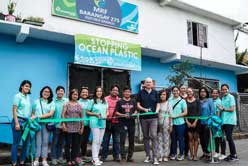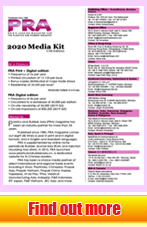Recycling: Sealed Air invests in Plastic Energy; Greiner partners Plastic Bank for collection centres in Manila; Repsol and Acteco join forces

US flexible packaging firm Sealed Air Corporation has made an equity investment in UK-based Plastic Energy Global, the parent company of Plastic Energy. Terms were not disclosed.
In 2018, Sealed Air pledged to design and advance packaging solutions that are 100% recyclable or reusable by 2025. As part of the pledge, the company has an ambitious target of 50% average recycled content across all packaging solutions with 60% of that coming from post-consumer recycled content.
Plastic Energy Global was established in 2012 with the goal of processing 300,000 tonnes of plastic by 2025. Plastic Energy transforms post-consumer plastic waste into new recycled oil that can be used to create essential packaging solutions, including protective packaging for food, thereby enabling plastic to become a new resource. Headquartered in London, the company has two operations in Spain and projects developing in Western Europe and Asia, with a vision for 50 new facilities over the next ten years.
In 2019, Sealed Air also announced it had joined the Alliance to End Plastic Waste, a global non-profit committed to investing in solutions to help eliminate plastic waste in the environment.
Sealed Air's brands include cushioning films Bubble Wrap and Cryovac.

Meanwhile in other news, Austrian packaging company Greiner Packaging is partnering Plastic Bank, a social enterprise that builds ethical recycling ecosystems in coastal communities, to open five collection centres in Manila, Philippines.
Greiner says the Philippines is the world’s third-largest producer of plastic waste, after China and Indonesia, with an estimated 2 million tonnes of plastics ending up in the ocean each year just in the Philippines. It adds that experts believe that the country’s Pasig River is alone responsible for introducing nearly 64,000 tonnes of plastic waste into the ocean every year.
It is, thus, working with Plastic Bank to construct a recycling infrastructure in the country, to allow for the collection of the plastic waste, which the collectors can exchange for money, goods, or digital tokens, and reprocessing the materials for reintroduction into the global manufacturing supply chain. Collection members receive a premium above the market rate for plastic, enabling them to earn a consistent, liveable wage. Plastic Bank also enables local entrepreneurs to set up and operate their own Plastic Bank branch as a fully supported franchise.
The reprocessed materials are sold as Social Plastic. Plastic Bank’s proprietary blockchain technology, powered by IBM, enables a transparent and traceable supply chain, and auditable, real-time impact tracking.
Plastic Bank has also empowered disenfranchised communities to build a better future in Haiti, Indonesia, Brazil and Egypt.
“This project clearly demonstrates how a circular system can actually work. The collectors drop off the plastic and it’s sorted before being processed into granulate. The granulate is sold to manufacturing companies, who want to use recycled materials in their products or packaging,” explains Michael Frick, Global Key Account Director at Greiner Packaging.
“We’re happy to be partnering with Greiner Packaging, because the company is aware of the gravity of the situation and is committed to working together to empower communities to stop ocean plastic. Plastic Bank is making a difference and building a regenerative economy,” says Gidget Velez, Plastic Bank’s Philippines Country Manager.

In other news, Spanish petrochemical firm Repsol and recycler Acteco are joining forces to increase the capacity for production of high quality recycled polyolefins at Acteco’s plant in Ibi, Alicante (Spain). The recycled product from this plant will be included in the Repsol Reciclex range.
The two companies have been collaborating since 2018, aiming to decrease waste and the volume of plastics going to landfill by promoting the recovery of polymers and their re-introduction into sectors such as automotive, healthcare, construction or packaging.
The aim is for Repsol to become a net zero emissions company by 2050, as announced in 2019. One of the ambitions in this area is to recycle the equivalent of 20% of its polyolefin production by 2030.
The partnership with Acteco is one of more than 200 circular economy initiatives that Repsol says it has launched to contribute to its carbon intensity reduction objectives.
This new agreement reinforces the partnership and consolidates the commitment of both companies to the recycling of high quality polyethylene and polypropylene from domestic and industrial plastic waste.
In the words of José Luis Bernal, Executive Director of Repsol Chemicals, “this is a strategic alliance that allows us to collaborate in boosting the circular economy and solutions for decarbonization, to reach our commitments regarding recycled plastics and offer our customers a complete range of high quality circular polyolefins that will allow them to increase the amount of recycled materials in their products”.
Jorge Ramis, Managing Director of Acteco, says that "thanks to this agreement we will provide a solution for the large number of plastic products that currently cannot be recycled, thus offering circular models to sectors where plastic is an essential material for the development of the products.”
(PRA)
Subscribe to Get the Latest Updates from PRA Please click here
©2020 Plastics and Rubber Asia. All rights reserved.

©2020 Plastics and Rubber Asia. All rights reserved.
Home Terms & Conditions Privacy Policy Webmail Site Map About Us





















